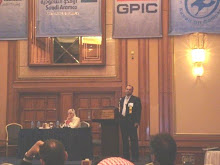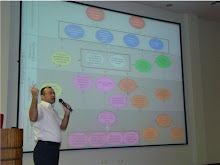IN BRIEF:
Construction Management is Project Management tailored to the specific needs of construction projects.
Project Management: Leadership + Scope, Schedule, Budget, QA/QC, HR, Reporting, Risk & Contracts.
Construction Management: Project Management AND extra consideration of Safety, Environment, Finance and Claims.
IN MORE DETAILS:
Project Management includes fully understanding and being responsible of and accountable for the below mentioned without having to do them personally. Integrating them into a project plan, manage its execution, control changes to it, and then closing the project:
1. Define scope, develop Work Breakdown Structure (WBS), and then verify and control this scope.
2. Do activity sequencing, activity resource and duration estimation, develop schedule, and then control it.
3. Estimate cost, determine budget, and then control costs.
4. Include steps for QA, and then assure quality by QC.
5. Determine and acquire HR requirements, and then manage teams.
6. Communicate information to people, and then develop performance reports.
7. Identify project risks, plan response to them, and then monitor and control them.
8. Plan purchases, select sellers, and then administer contracts & close them.
Construction Management ADDS, to the above listed, the following areas that apply specifically to construction industry:
9. Plan safety, and then assure and control safety.
10. Determine environmental requirements, and then perform and control them.
11. Determine project financial requirements, and then control financial aspects & records.
12. Identify and Quantify Claims, and then try to prevent claims from occurring or resolve occurring ones.
About The Author

- Eng. Samer el Barakeh, MPM, PMP
- Samer el Barakeh was born in Lebanon, 1973. He completed his Bachelor in Engineering-CCE at Beirut Arab University-Lebanon in 1996 with honours. Samer was granted Masters Degree in Project Management (MPM) from the University of Sydney-Australia with honours. He also gained the Project Management Professional (PMP) Credential from The Project Management Institute (PMI). Samer is a member of the Order of Architects and Engineers in Lebanon since 1996, The Project Management Institute (PMI), Arabian Gulf Chapter (AGC-PMI) and Lebanon Chapter-PMI. During his 13 years of professional experience in Lebanon, Australia and Saudi Arabia, Samer held many positions among them: Telecommunication Site Engineer, Site Manager, Low Current Service Head, and he is currently Senior Systems Analyst at the General Project Construction Division. Samer is a Project Management Consultant and Training Provider for universal organizations like Business Management Consultants (USA) www.bmc-online.com and PMCTQuest (Canada) www.pmctquest.com Samer is a Registered Training Provider for Project Management Professional (PMP), and he provides training in Program Management, Portfolio Management,PMO...
Select a topic to view content
- A comparison between PMBOK and Prince2 Methodologies and reflection on case study examples (1)
- ABC to Avoid Project Failure (1)
- Business Case and Quantitative Benefits (1)
- Do we need more 'Planners' ? (1)
- Fasilitator in Partnering-A Coincise Shot (1)
- How to Ensure Stratgic Alignment of Our Projects? (1)
- Individual Dissimilarity and Team Work (1)
- Knowledge Management (1)
- Maturity Models-The Pros and Cons (1)
- Organizational Advantages from Partnering (1)
- Organizational Maturity: Lets Head Upwards... (1)
- Organizational Strategy and Project Alignement (1)
- Practical Solutions 1 of 6: Introduce RMMM (1)
- Practical Solutions 2 of 6: Facilitate Change to Perk up Maturity (1)
- Practical Solutions 3 of 6: Leverage Organisational Culture Barrier (1)
- Practical Solutions 4 of 6: Organisational Cultural Alignment (1)
- Practical Solutions 5 of 6: Defining a Unified Decision Making Tool (1)
- Practical Solutions 6 of 6: Understanding The Paradox of Control (1)
- Programme Management to Implement Strategy (1)
- Project Management and Construction Management (1)
- Project Managers relocated before Proper Project Closure and Learning Lessons (1)
- Project Managers' Power (1)
- Strategic Planning (1)
- Successful Project Management Office-PMO (1)
- System Thinking: Archetypes at Work... (1)
- The Partnering Change Process (1)
- The Upper Hand… Leadership skills or Processes? (1)
- Thinking about change needed? Maybe you should be more ‘worried’ about how to make it real (1)
- Vision Mission and Objectives What and Why? (1)
- What is meant by Portfolio and Programme Management (1)
- Why Partnering in Organizations? (1)
November 20, 2008
Project Management and Construction Management
Posted by
Eng. Samer el Barakeh, MPM, PMP
at
1:51 AM
1 comments
![]()
![]()
Subscribe to:
Comments (Atom)
Followers
All Titles
A comparison between PMBOK and Prince2 Methodologies and reflection on case study examples
ABC to Avoid Project Failure
Business Case and Quantitative Benefits
Do we need more 'Planners' ?
Fasilitator in Partnering-A Coincise Shot
How to Ensure Stratgic Alignment of Our Projects?
Individual Dissimilarity and Team Work
Knowledge Management
Maturity Models-The Pros and Cons
Organizational Advantages from Partnering
Organizational Maturity: Lets Head Upwards...
Organizational Strategy and Project Alignement
Practical Solutions 1 of 6: Introduce RMMM
Practical Solutions 2 of 6: Facilitate Change to Perk up Maturity
Practical Solutions 3 of 6: Leverage Organisational Culture Barrier
Practical Solutions 4 of 6: Organisational Cultural Alignment
Practical Solutions 5 of 6: Defining a Unified Decision Making Tool
Practical Solutions 6 of 6: Understanding The Paradox of Control
Programme Management to Implement Strategy
Project Management and Construction Management
Project Managers relocated before Proper Project Closure and Learning Lessons
Project Managers' Power
Strategic Planning
Successful Project Management Office-PMO
System Thinking: Archetypes at Work...
The Partnering Change Process
The Upper Hand… Leadership skills or Processes?
Thinking about change needed? Maybe you should be more ‘worried’ about how to make it real
Vision Mission and Objectives What and Why?
What is meant by Portfolio and Programme Management
Why Partnering in Organizations?















